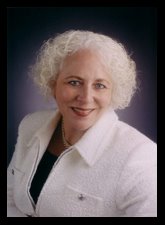State Existing-Home Sales Hit Another Record in Third Quarter
WASHINGTON (November 15, 2005) – Total state existing-home sales set a record in the third quarter, with 44 states and the District of Columbia showing higher sales compared to a year ago, according to the National Association of Realtors®.NAR’s quarterly report on total existing-home sales, which include single-family and condos, shows that the national seasonally adjusted annual rate* was 7.24 million units in the third quarter, up 6.5 percent from 6.80 million in the third quarter of 2004. The previous record was 7.22 million units in the second quarter of this year.The strongest increase was in Arkansas, where the third-quarter sales activity rose 32.1 percent compared with the third quarter of 2004. Utah existing-home sales increased 26.6 percent from a year earlier, and Washington state was up by 20.0 percent. Fourteen other states recorded double-digit sales gains. Four states experienced declines, while complete data for two states was not available.David Lereah, NAR’s chief economist, said third quarter home sales mark a peak for the current housing cycle. “We’re fairly confident that third quarter home sales will prove to be the high point of the five-year housing boom,” he said. “Favorable housing affordability conditions complemented a strong fundamental demand, but we expect a modest easing from higher mortgage interest rates and home sales will hold at a more sustainable pace.” He expects overall home sales next year to be the second highest on record.According to Freddie Mac, the national average commitment rate on a 30-year conventional fixed-rate mortgage was 5.76 percent in the third quarter, up from 5.72 percent in the second quarter; the rate it was 5.89 percent in the third quarter of 2004. NAR President Thomas M. Stevens from Vienna, Va., said the transitioning housing market will continue to see positive market fundamentals. “Although mortgage interest rates are expected to gradually rise, they will remain historically low; the labor market is firming and the economy is growing,” said Stevens, senior vice president of NRT Inc. “Our growing population has a fundamental need for housing, so these conditions mean home sales should stay at levels that help to support the overall economy.”Click to view State EHS DataRegionally, the South recorded the strongest annual increase with an existing-home sales pace of 2.77 million units in the third quarter, up 8.2 percent from a year earlier. After Arkansas, the strongest increase in the region was in South Carolina, up 18.1 percent from the third quarter of 2004, followed by Georgia, where existing-home sales rose 14.4 percent, and Texas, which increased 13.9 percent. The Northeast saw a third quarter existing-home sales rate of 1.20 million units, up 6.9 percent from the third quarter of 2004. Massachusetts experienced the strongest increase in the region with sales activity 11.2 percent above a year ago, followed by Connecticut, up 8.3 percent, and New York, which increased 7.0 percent.In the Midwest, total existing-home sales in the third quarter increased 5.0 percent to a 1.63 million-unit annual pace compared to a year ago. North Dakota led the region, up 19.3 percent from the third quarter of last year, followed by Indiana, with a 12.3 percent rise, and South Dakota, up 10.5 percent.In the West, existing home sales rose 4.1 percent to a pace of 1.64 million units in the third quarter from the same period in 2004. After Utah and Washington, the strongest increase was in Oregon, where total existing-home sales rose 15.5 percent compared to a year ago; Idaho rose 12.3 percent while Alaska increased 11.7 percent.The National Association of Realtors®, “The Voice for Real Estate,” is America’s largest trade association, representing more than 1.2 million members involved in all aspects of the residential and commercial real estate industries.
# # #
· The seasonally adjusted annual rate for a particular quarter represents what the total number of actual sales for a year would be if the relative sales pace for that quarter was maintained for four consecutive quarters. Total home sales include single family, townhomes, condominiums and co-operative housing. NAR began tracking the state sales series in 1981.Seasonally adjusted rates are used in reporting quarterly data to factor out seasonal variations in resale activity. For example, sales volume normally is higher in the summer and relatively light in winter, primarily because of differences in the weather and household buying patterns.Tables of state resale rates, percent changes and some historic data are available at the site below under Economic & Housing Statistics – click on Existing Home Sales twice, then look for the quarterly data.
Copyright NATIONAL ASSOCIATION OF REALTORS®Headquarters: 430 North Michigan Avenue, Chicago, IL. 60611-4087DC Office: 500 New Jersey Avenue, NW, Washington, DC 20001-2020
# # #
· The seasonally adjusted annual rate for a particular quarter represents what the total number of actual sales for a year would be if the relative sales pace for that quarter was maintained for four consecutive quarters. Total home sales include single family, townhomes, condominiums and co-operative housing. NAR began tracking the state sales series in 1981.Seasonally adjusted rates are used in reporting quarterly data to factor out seasonal variations in resale activity. For example, sales volume normally is higher in the summer and relatively light in winter, primarily because of differences in the weather and household buying patterns.Tables of state resale rates, percent changes and some historic data are available at the site below under Economic & Housing Statistics – click on Existing Home Sales twice, then look for the quarterly data.
Copyright NATIONAL ASSOCIATION OF REALTORS®Headquarters: 430 North Michigan Avenue, Chicago, IL. 60611-4087DC Office: 500 New Jersey Avenue, NW, Washington, DC 20001-2020

